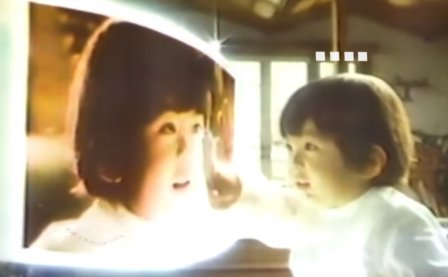Still alive. First the vacuum fills with a warm something, like an organ hum or the static of recorded space. There are the chimes from the clock on my grandma’s wall, ringing on the hour all through the night, even when no one could be expected to be listening. Then there’s the idea of Kara-Lis Coverdale’s contributions to my two favorite Virgins tracks (“Live Room” & “Live Room Out”). And throughout the first section, there are sounds resembling the samples sometimes found in the West Stacks of the vaporwave archives, but removed enough from that concept that it doesn’t feel right I brought it up. And still there’s that hum — it would have to be an organ. Or at least it’s organic (not as in opposed to digital). There are days that feel like an emotional rollercoaster when nothing happened at all.
I stretched my legs through the slats of our porch like stirrups and looked out at the small, almost grass-less backyard, the cracked alleyway, weeds, and chainlink. There’s a bush of pink flowers growing through it, branches woven between. Grafts, and Coverdale’s project to an extent, seems driven by a patient, realistic devotion to space that exists without measure. Fidelity for an imaginary country. It sustains: There, you would indeed hear this. Although it sounds somehow different from anywhere, it’s the sound of somewhere I know I could’ve been. It promises a somewhere out there; you can hear at the edges of listening. A moorland where the ecology has a final. Inhabitants would be playing instruments for themselves in conversation with the feeling networks around them, sounding out a natural exchange that’s detached without being cold, fluid without being beautiful or optimistic, and benevolent by necessity: present, reactive, activating. It’s communication that desires the immanence of a process-listening, like audition beyond fidelity. Devices camouflaged in the mycelia heath, you’d remember to listen for a heartbeat.
A bright dot of fuzz floated up in the sunlight. I didn’t know if it was dust or a seed. Grafts fits to spring associations: becoming, blooming, unlearning, and the if of modal verbs. There are signs with hollow posts that make a flute-like whistling noise when wind blows the right way. A strand of web was swinging between two slats, but the spider must’ve moved on or had been eaten by one of the house centipedes, because the strand was left alone not to catch anything. When I went inside the house for water, my roommate was missing from the couch. The next time, she was there. It feels in turn precise and random. The still-recognizable stretches of synthetic human voice from 2014’s A480 have been replaced by noisemakers and sources I couldn’t name, but sound still-recognizable, or at least real: possible, intentional, incidental. A fly flew straight into my eye. The album artwork is a closeup portrait of a branch transparently superimposed over itself. I was thinking of the layers of muted or deleted tracks that might’ve lived and brought the musical elements together into the sequence that now unfolds, still somewhere saved silent in the mix, phasic grafts. I blinked and it was still sunny out, the rays warm enough to balance out the cold wind, or at least enough for me to feel open to the chill. I shivered. I drank more water.
Alive — together. It took me over two years to set Google Docs to turn “––” into an mdash. It took me over a year to realize I could skip through tracks on SoundCloud by tapping my laptop screen. Now I touch a place and go to where I spot a transition in the mix. When I do, I’m reminded I’ve got tiny cuts all over my hands that salt and citrus sometimes enter after blood is done coming out, stinging like a song. Grafts is melodic, a singing album made of three parts: “2c” (like the family of phenethylamines for a microdose listen), “Flutter” (like a heart palpitation causing acid reflux or the way your heart would feel if you have a crush), and “Moments In Love” (like memories of your partner or how timespans explore each other, together, in the promise to be better). The third movement of the mesh-triptych doesn’t really fade out as it does wear away, as if the sun were setting on the day’s regular motion. Footsteps through a Tamriel wetland, a drum being patted to sleep, maybe an engine winding down. I don’t know. You can really hear anything you want. I heard crickets.
Are you listening? She does not answer for a long while. The pause is not experimental. The buffering understanding of Grafts as scripted music or a modal live-take is a non-starter — it’s been engineered so that when you hear it, it’s alive. Were you?
More about: Kara-Lis Coverdale




